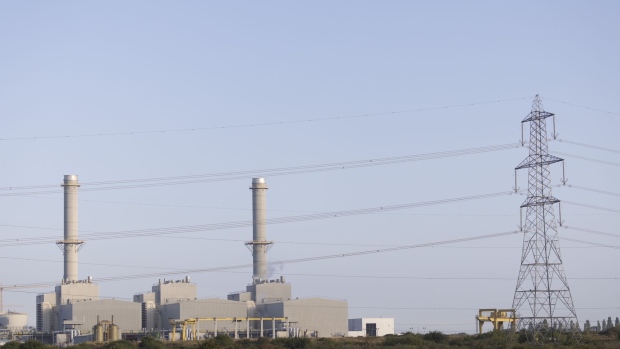Feb 7, 2023
UK Sees Tax Take Cut by £12.7 Billion Due to Lower Gas Prices
, Bloomberg News

(Bloomberg) -- Tax revenues from the country’s oil & gas sector will fall as fossil fuel prices drop, the UK government expects, restricting Chancellor Jeremy Hunt’s spending power in the budget next month.
Treasury officials estimate tax revenues in 2023-2024 from oil & gas will be £12.7 billion ($15.3 billion) lower than forecast in November as a result of the lower gas price, two people familiar with the matter said. That would wipe out the saving the government is due to make on supporting household energy bills as a result of the same price decrease, they said.
At Hunt’s November budget the government was forecast to spend £12.8 billion on energy support in 2023-24, a figure which is now due to fall to £1.5 billion because of the decline in prices, the Resolution Foundation estimates.
The analysis highlights the tightened fiscal circumstances facing Hunt, who’s under pressure by members of the ruling Conservative Party to cut taxes in the budget on March 15, a suggestion he’s repeatedly pushed back against. Hunt and Prime Minister Rishi Sunak have repeatedly said their goal is to clamp down on inflationary pressures and restore order to the public finances before they can contemplate any large-scale tax cuts.
Less Headroom
“Falling wholesale prices will ease pressure on energy bills but mean that tax receipts will be significantly lower with any savings offset next year,” the Treasury said in a statement. “It would also be irresponsible to plan fiscal policy on such volatile prices.”
Hunt has already been told by the Office for Budget Responsibility that he has less headroom for giveaways in the budget because of downward revisions to the country’s economic growth potential linked to chronic worker shortages and weak productivity.
The change to the estimated tax revenue stems from a fall in UK natural gas prices from August highs as a relatively mild winter reduced demand and strong imports of liquefied natural gas eased Europe’s energy crisis. That’s lowered the burden on government and consumer finances to a degree, but it’s unclear if the low prices will last as markets remain volatile.
And though the Treasury’s forecasts may be hit by the lower revenue from windfall taxes and North Sea producers, other tax revenues are likely to be boosted as lower bills lift household consumption and business profits, the Resolution Foundation said on Tuesday. The think tank estimates the drop in windfall tax receipts from energy firms to be in the region of £7 billion.
Industry bodies have still warned that small businesses face soaring bills and a surge in bankruptcies after a reduction in government support in April will leave many paying almost double their current energy bills.
(Updates with Treasury comment in fifth paragraph.)
©2023 Bloomberg L.P.






